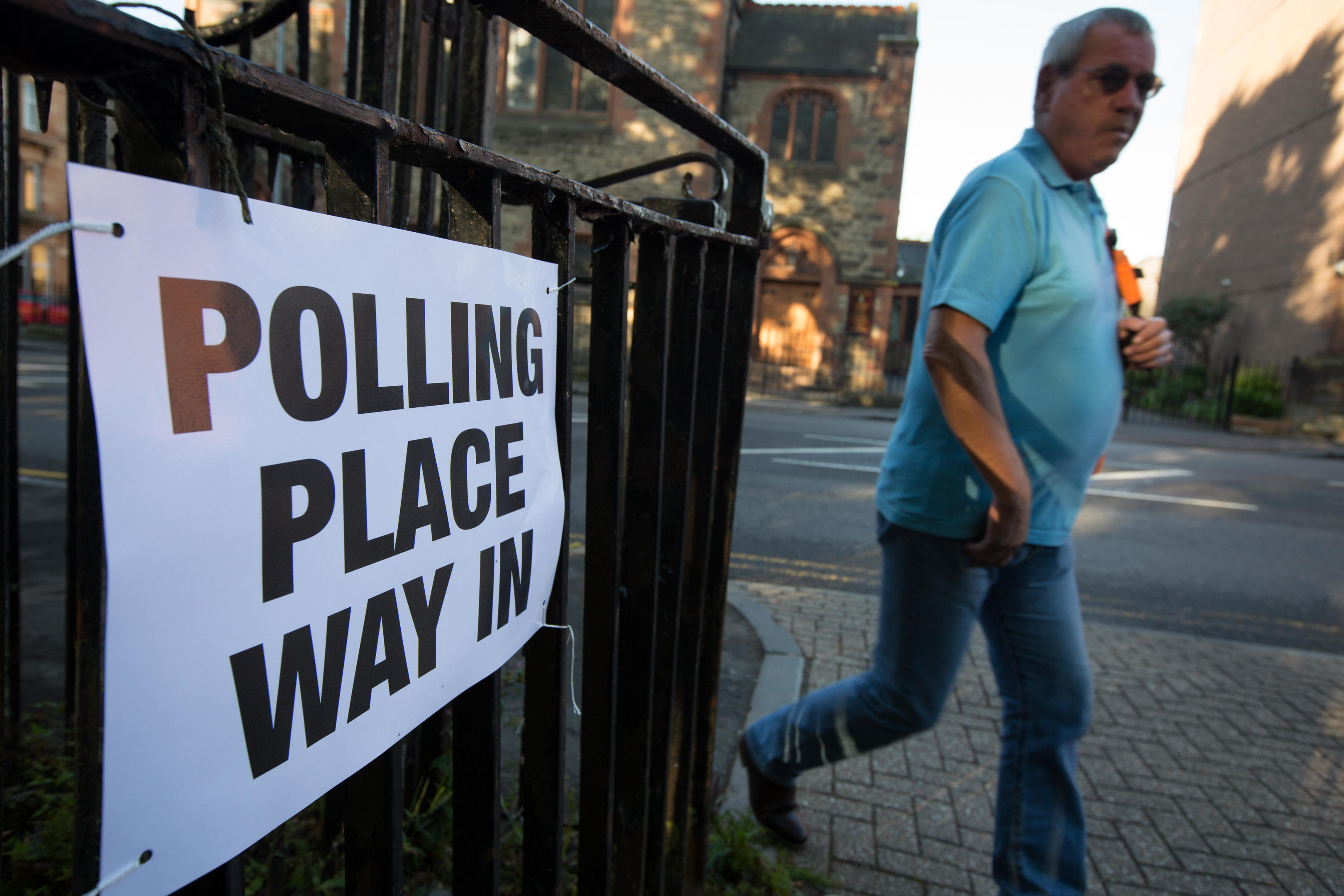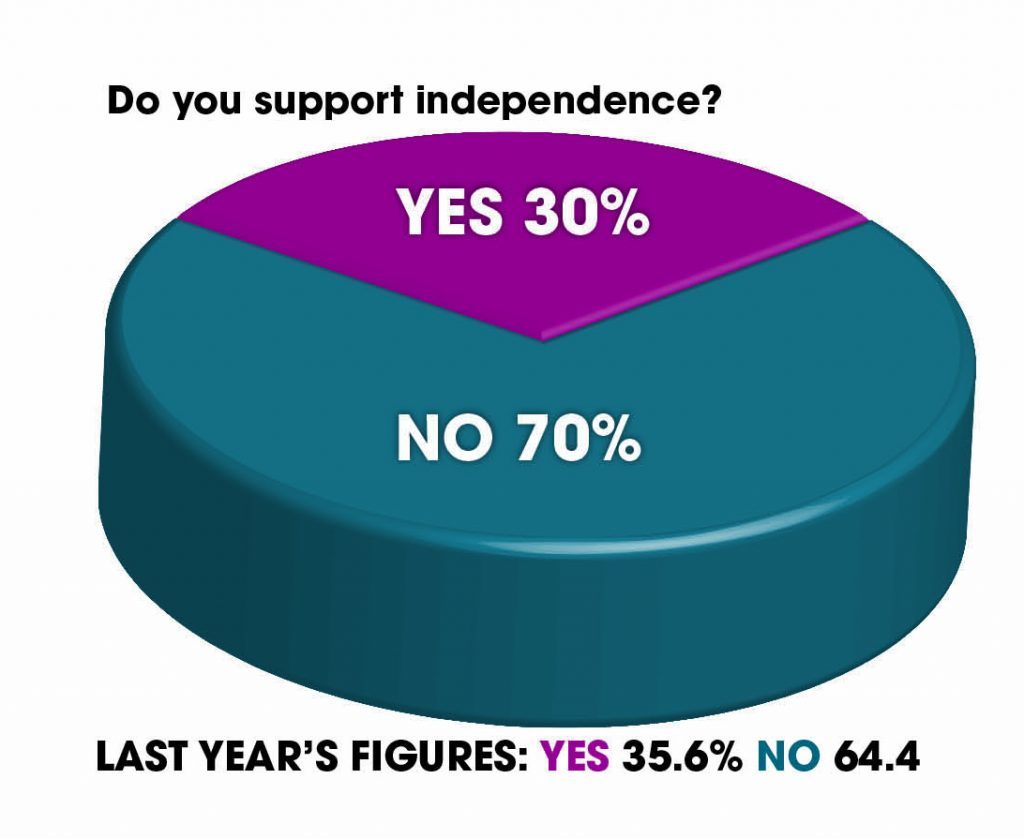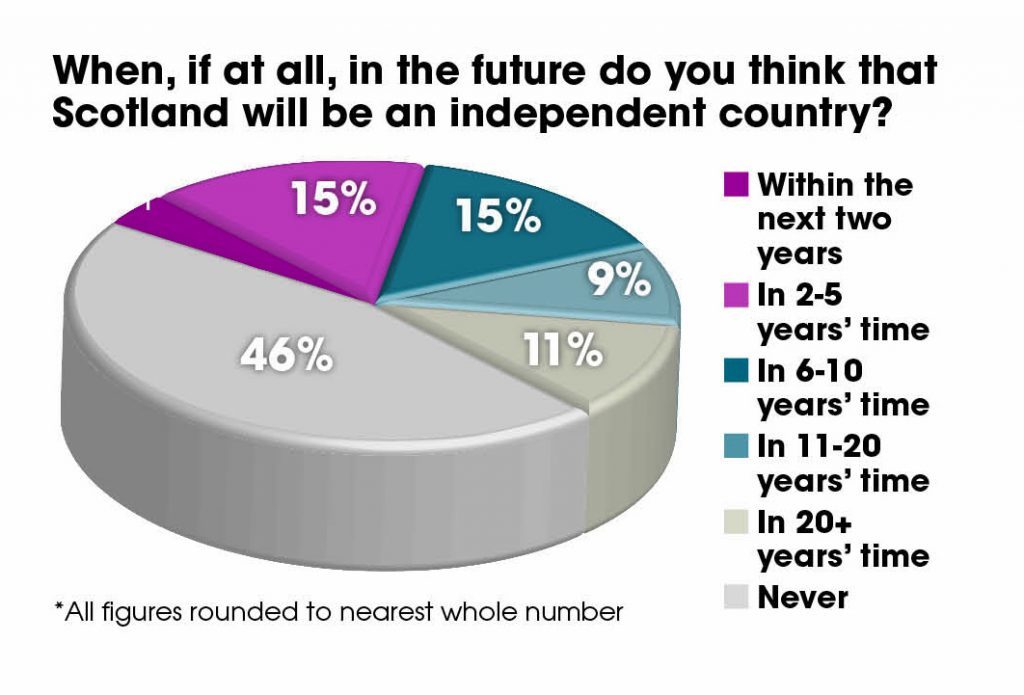
NICOLA STURGEON’S hopes of a successful second independence referendum have been dealt a major blow – after 70% of mature voters revealed they would continue to back the Union.
The widening gulf between Scotland’s pensioners and the rest of the country over independence is laid bare today in a new poll for The Sunday Post.
A poll of all voters last week sent shockwaves through Holyrood when it revealed a 50/50 split between Yes and No.
However, our exclusive survey of 1000 voters over the age of 60 shows support for separation in this age group has dropped since last summer’s Brexit vote.
Of those certain to vote, 70% said they would back the Union in another referendum, while just 30% would vote for independence.
This is a hardening of support for staying in the UK from last March when a Sunday Post poll of pensioners showed 64.4% backed No and 35.6% backed Yes.

The findings present Yes strategists with a huge headache given the country’s army of 1.2 million pensioners are the biggest voters.
Pro-independence supporters will, however, be encouraged by separate findings that show the majority of pensioners (54%) feel Scotland will eventually become an independent country, even if they are against it themselves.
A second independence referendum has been described as “highly likely” by Nicola Sturgeon if the move to formally trigger Brexit – expected in the next two weeks – happens without any concessions for Scotland, where the majority of voters backed Remain in last year’s EU referendum.
Sunday Post poll shows timing is of the essence as Indy Ref 2 battle lines drawn – click here to read more
A Scottish Conservatives spokesman said the “encouraging results” showed those who valued their pension and the prospects of their family thought Scotland belonged in the UK.
“Equally, the last thing they want is to be forced to declare that again at the ballot box,” he added.
The Survation poll of 1010 voters over the age of 60 was conducted between March 3 and 9.
The participants – 97.5% of whom voted in the 2014 referendum – were asked how they would vote if there was another poll tomorrow with the question: ‘Should Scotland be an independent country?’.
Excluding the undecided, 30% said Yes and 70% said No.
An age breakdown shows the closest gap was in the 60 to 64-year-old category, where 41.4% were pro-independence and 58.6% were pro-Union.
Around a quarter of the people who voted SNP in last year’s Holyrood election said they would not vote Yes in a second independence poll.
Scottish Labour deputy leader Alex Rowley said: “This poll demonstrates that pensioners are rightly worried about the impact of independence and they clearly have no appetite for a second independence referendum.
“Pensioners rely on local public services such as social care, which are under massive pressure at the moment due to SNP cuts, but would be even more at risk under the austerity that would follow independence.
“The economic case for independence does not stack up and would lead to turbo-charged austerity – further threatening the services that so many older people rely upon.
“Scottish Labour firmly opposes the SNP plans for a second independence referendum which is not in the people of Scotland’s interests.
“The SNP needs to get a grip on addressing its failings in health, in education and in supporting the Scottish economy and move away from this obsession with independence that is having such a negative impact on our country.”

The poll also asked: “When, if at all, in the future do you think that Scotland will be an independent country?”
A total of 46% said “never”, but the majority said it would happen at some point in the future.
Just 4% thought independence would happen within the next two years, 15% in the next two to five years’ time, 15% in six to 10 years’ time, 9% in 11 to 20 years’ time and the rest (11%) said in 20 years or more.
Support for the idea that independence is “inevitable” was more common among the younger people questioned.
The 2014 referendum saw 45% of people back independence and 55% back the Union. Since then, the polls have barely shifted though the 50/50 split in last week’s wider poll was viewed as a step forward for the pro-independence camp.
An SNP spokesman said: “The most recent full poll has support for independence running neck and neck with support for the Union.
“The Tories now think they can do anything to Scotland and get away with it – but backing for independence is only likely to grow as Theresa May pursues an economically damaging hard Brexit without paying heed to Scotland’s vital interests.”
The Survation poll also asked people how they would vote if another EU referendum was held tomorrow. A total of 44% older Scots said they would vote Leave, 49% said they would vote Remain and the rest were undecided.
When The Sunday Post asked the same question last March, three months before the EU referendum, support for Leave was at 38.6%, Remain at 41.1% and the rest were undecided.

Enjoy the convenience of having The Sunday Post delivered as a digital ePaper straight to your smartphone, tablet or computer.
Subscribe for only £5.49 a month and enjoy all the benefits of the printed paper as a digital replica.
Subscribe